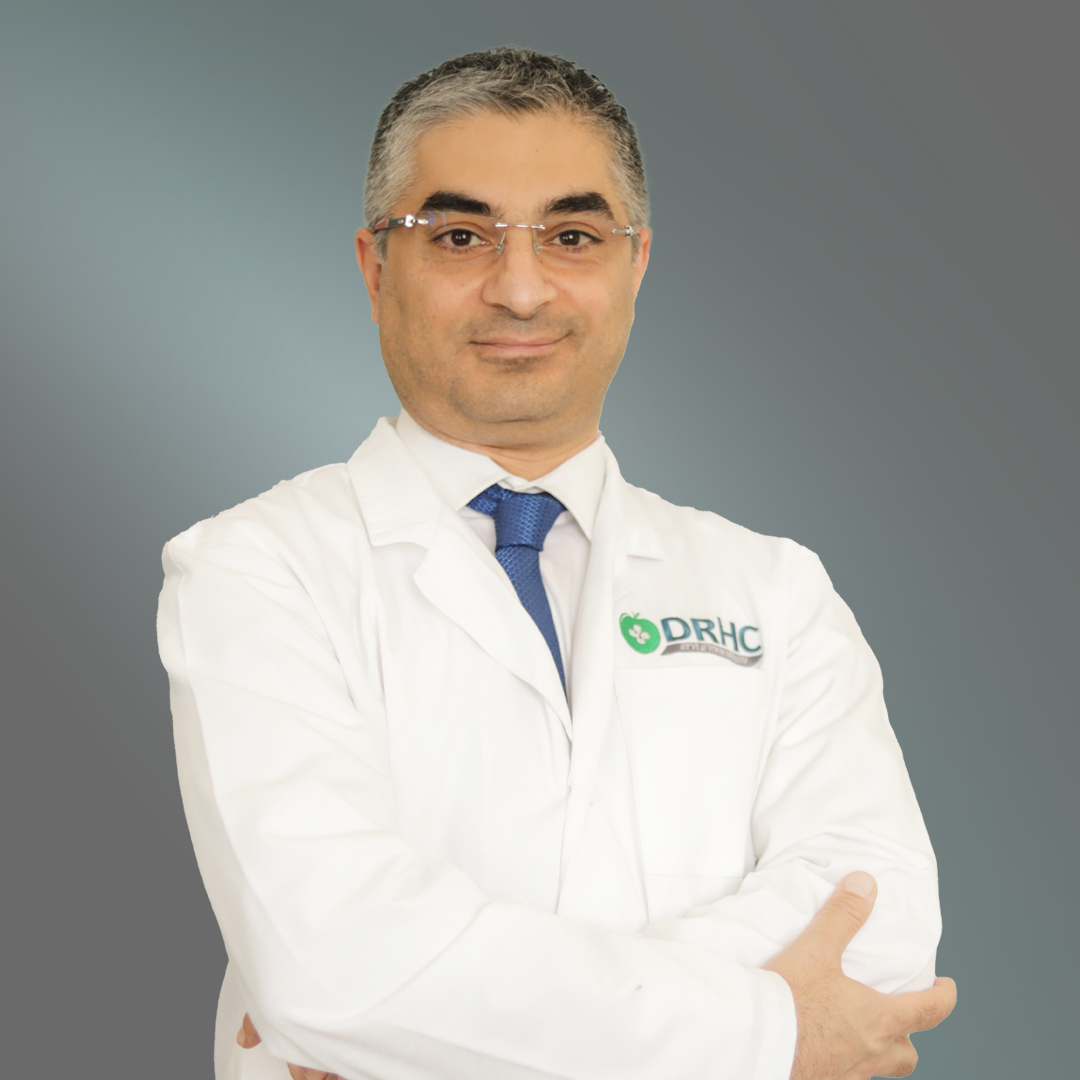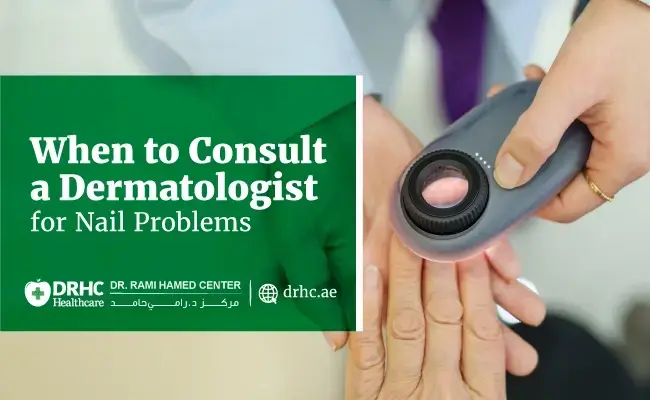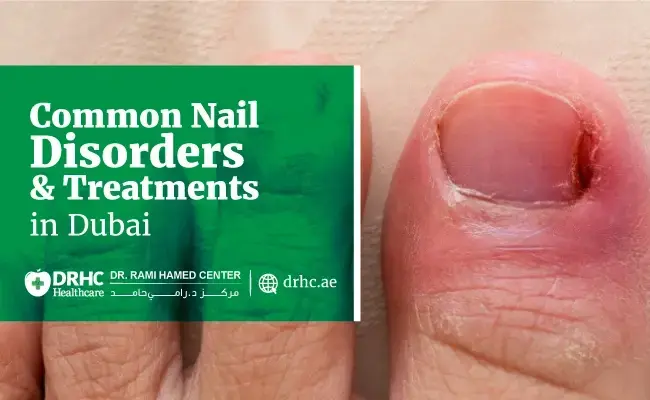
Skin infections can be uncomfortable, itchy, and sometimes embarrassing to deal with—especially when they don’t seem to go away on their own. One of the most common causes of persistent skin irritation is a fungal infection.
At Dr. Rami Hamed Center (DRHC) in Dubai, we understand that dealing with any skin problem can cause concern, particularly when symptoms affect your daily comfort or confidence. This guide will help you understand how to identify fungal skin infections, what causes them, and the most effective treatment options available in Dubai.
What Are Fungal Skin Infections?
Fungal skin infections are caused by microorganisms called fungi that thrive in warm, moist environments—conditions that are quite common in Dubai’s hot climate. These infections can affect various parts of the body, including the scalp, nails, feet, and groin area.
Common types of fungal infections include:
- Ringworm (Tinea corporis): Circular, red, scaly patches on the skin.
- Athlete’s Foot (Tinea pedis): Itching and peeling between the toes or on the soles.
- Jock Itch (Tinea cruris): Red, irritated rash in the groin area.
- Fungal Nail Infections: Thickened, discolored, or brittle nails.
- Yeast Infections (Candidiasis): Red, itchy patches in moist skin folds.
Although these infections are rarely dangerous, they can be persistent and contagious, making early treatment important.
Why Are Fungal Infections Common in Dubai?
Dubai’s hot and humid weather creates the perfect environment for fungi to grow. Wearing tight clothing, heavy footwear, or not drying off completely after showers or swimming can all increase your risk.
Other risk factors include:
- Excessive sweating
- Sharing towels or footwear
- Weakened immune system
- Diabetes or obesity
- Use of antibiotics or steroids
Recognizing these risk factors can help prevent infections before they start.
Common Symptoms to Watch For
Fungal infections can look and feel different depending on the affected area, but some common signs include:
- Persistent itching or burning
- Red, scaly, or flaky skin patches
- Cracked skin or peeling
- Discoloration or thickening of nails
- Circular rash with a clear center (typical of ringworm)
If symptoms persist for more than a few days or spread to other areas, it’s best to consult a dermatologist for an accurate diagnosis and treatment.
How Fungal Infections Are Diagnosed
At DRHC Dubai, dermatologists use advanced diagnostic tools to accurately identify the type of fungal infection. This may include:
- Visual examination of the skin or nails
- Skin scraping or culture test to identify the fungus under a microscope
Accurate diagnosis ensures that the treatment targets the specific fungus responsible, improving recovery time and preventing recurrence.
Effective Treatment Options at DRHC Dubai
Treatment for fungal infections depends on the type and severity of the infection. At Dr. Rami Hamed Center, we tailor each treatment plan to suit your condition and skin type. Common options include:
1. Topical Antifungal Creams or Ointments
For mild infections, prescription antifungal creams or lotions help eliminate the fungus and reduce inflammation.
2. Oral Antifungal Medications
For severe or widespread infections, oral medications may be prescribed to clear the infection from within.
3. Laser or Advanced Skin Therapy
In resistant cases, laser treatments can be used to effectively target fungal growth—especially for nail fungus—without harming surrounding tissue.
4. Lifestyle & Hygiene Advice
Our specialists also provide personalized hygiene guidance to prevent reinfection, such as wearing breathable fabrics, keeping the skin dry, and avoiding shared personal items.
Prevention Tips for Fungal Skin Infections
Preventing fungal infections often comes down to good hygiene and simple daily habits.
Here are some effective tips:
- Keep your skin dry, especially between toes and skin folds.
- Wear loose, breathable clothing in hot weather.
- Avoid walking barefoot in public showers or pools.
- Change socks and underwear daily.
- Avoid sharing towels, footwear, or razors.
These steps, combined with professional care, can help you maintain healthy skin all year round.
FAQs About Fungal Skin Infections
1. Are fungal infections contagious?
Yes, fungal infections can spread through direct skin contact or by sharing personal items such as towels or shoes.
2. How long does treatment take?
Treatment duration varies, but mild infections may clear in 1–2 weeks, while nail or scalp infections may take several months.
3. Can I use over-the-counter creams?
While some OTC creams can help mild cases, it’s best to consult a dermatologist for accurate diagnosis and targeted treatment.
4. Can fungi come back after treatment?
Yes, recurrence is possible if hygiene practices are not maintained or the infection wasn’t fully treated.
5. When should I see a dermatologist in Dubai?
If your rash persists for more than a week, spreads, or becomes painful, it’s time to seek professional evaluation at DRHC Dubai.
Conclusion
Fungal skin infections are common but highly treatable—especially when diagnosed early. With Dubai’s humid climate, preventive care and professional treatment go hand in hand in keeping your skin healthy and infection-free.
At Dr. Rami Hamed Center (DRHC) in Dubai, our experienced dermatologists offer advanced and personalized care for all types of fungal infections, ensuring safe, effective, and lasting results.
If you’re struggling with persistent itching, redness, or rashes, schedule a consultation at DRHC Dubai and take the first step toward clear, comfortable skin.
📞 Call / WhatsApp: +97142798200
📍 Visit Us: Dr Rami Hamed Center, Dubai Healthcare City
🌐 Website: www.drhc.ae
Topic: Dermatology







.webp)

Leave a comment